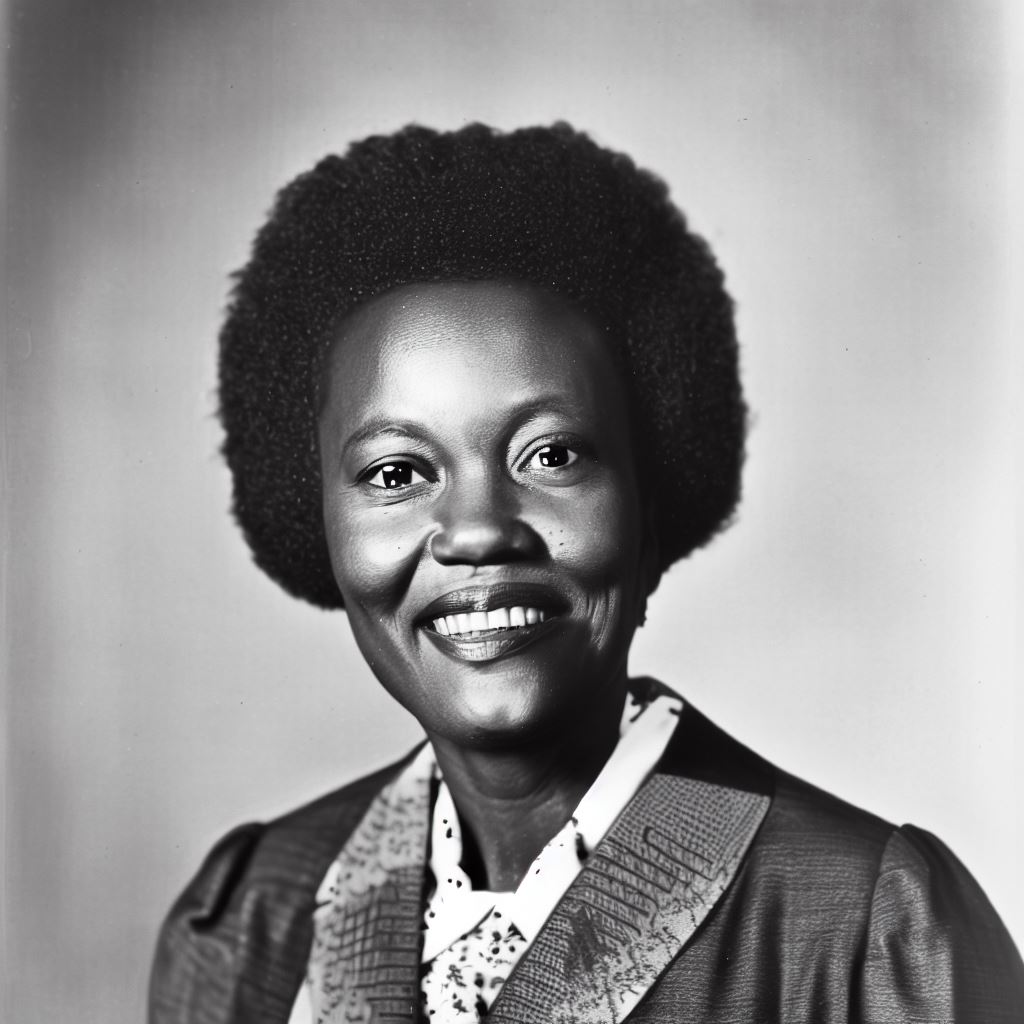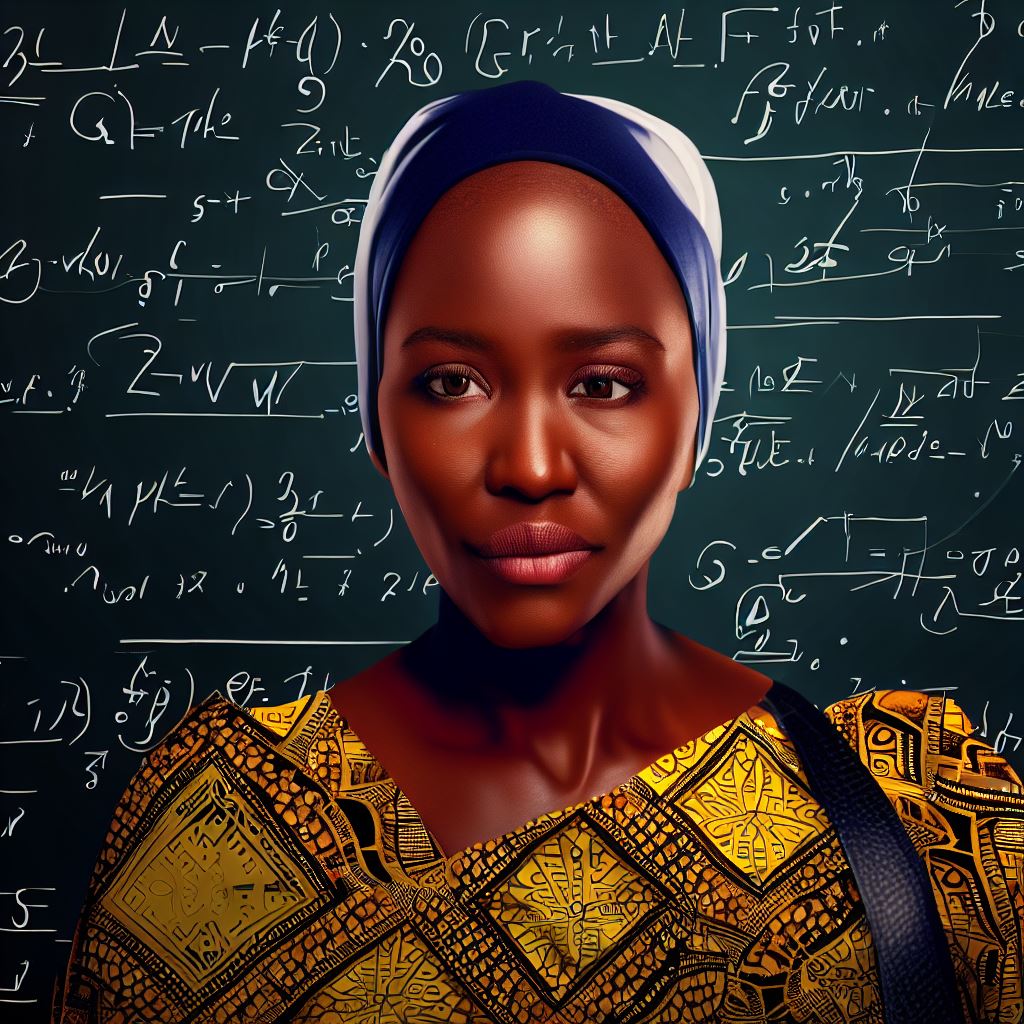Introduction
Nigeria, a country with a rich history in mathematics, has produced numerous famous mathematicians.
It is important to highlight their achievements to showcase Nigeria’s contribution to the field.
This blog post explores the achievements and works of Nigeria’s famous mathematicians.
A. Nigeria’s Rich History in Mathematics
Nigeria has a long-standing tradition of excellence in mathematics, dating back to ancient times.
Scholars from Nigeria have consistently excelled in various branches of mathematics, making significant contributions to the field.
B. Importance of Highlighting Famous Mathematicians
Highlighting the achievements of famous Nigerian mathematicians is crucial for several reasons.
Firstly, it promotes national pride and celebrates the intellectual prowess of the country.
Secondly, it serves as an inspiration for upcoming mathematicians, encouraging them to pursue the subject with passion and dedication.
Thesis Statement: This Blog Post Explores the Achievements and Works of Nigeria’s Famous Mathematicians
This blog post will delve into the remarkable achievements and significant contributions made by Nigeria’s famous mathematicians.
By examining their works, we can gain a deeper understanding of their impact on the field and their lasting contributions to mathematics.
Basically, Nigeria’s rich history in mathematics and the accomplishments of its famous mathematicians deserve recognition.
By shedding light on their achievements, we can appreciate Nigeria’s intellectual contributions and inspire future generations of mathematicians.
Stay tuned for the upcoming sections that will showcase the remarkable achievements of these renowned mathematicians.
Early History of Mathematics in Nigeria
A. Ancient mathematical practices
The early history of mathematics in Nigeria can be traced back to ancient times, where various mathematical practices were observed.
These practices were not formal, but they laid the foundation for the development of mathematical concepts in Nigeria.
Ancient Nigerian civilizations had their own methods of counting and measuring.
These methods were based on practical needs, such as trading and agriculture. They used various tools and symbols to represent numbers and measurements.
B. Traditional Nigerian methods of counting and measuring
In traditional Nigerian societies, counting was often done using objects such as stones or wooden sticks.
These objects were arranged and grouped in specific patterns to represent different numbers.
This method of counting was practical and effective for everyday tasks.
Measuring in traditional Nigeria was also based on practicality.
For example, a person’s height could be measured using specific body parts, such as the length of their feet or arms.
Similarly, distances could be estimated using landmarks or natural features.
C. Introduction of formal mathematics through colonization
The introduction of formal mathematics in Nigeria occurred during British colonization. The British brought formal education systems, including mathematics teaching, with a curriculum.
Formalizing mathematics in Nigeria led to profound changes. It offered structured and systematic learning, enabling in-depth understanding and analysis.
This formal education system played a pivotal role in Nigerian mathematicians’ development.
Nigeria boasts renowned mathematicians who’ve excelled nationally and internationally, underscoring its mathematical prowess.
Chike Obi, a mathematical physicist pioneer in Nigeria, made groundbreaking contributions to partial differential equations and mathematical analysis.
Olabisi Ugbebor, specializing in functional analysis, delved into operator theory and its applications in differential equations and control theory.
Abdulazeez Ude, another eminent mathematician, contributed significantly to algebra and number theory. His research in finite fields and cryptography has left a lasting impact.
These mathematicians have not only made substantial contributions but have also mentored and inspired the next generation.
In summary, Nigeria’s mathematical journey began with ancient practices and evolved through colonization.
The nation has produced illustrious mathematicians who’ve made significant contributions, inspiring future generations.
Read: Work Environment of a Data Analyst in Nigeria
First Generation Nigerian Mathematicians
During the early years of Nigeria’s independence, a group of pioneering mathematicians emerged, paving the way for the country’s excellence in the field.
Among them were Chike Obi and Ayodele Majekodunmi, whose educational backgrounds and contributions propelled them to greatness.
A. Chike Obi
- Chike Obi was born on November 17, 1916, in Anambra State, Nigeria.
- He attended CMS Grammar School in Lagos and later proceeded to the University of London.
- After obtaining his doctorate, Chike Obi returned to Nigeria and became a professor at the University of Ibadan.
- His research primarily focused on functional analysis and mathematical economics.
- One of Obi’s notable achievements was his groundbreaking work on nonlinear differential equations.
- He made significant contributions to the understanding of stability in ordinary differential equations.
- Chike Obi’s impact extended beyond academia as he played a crucial role in shaping Nigeria’s education system.
- He served as the chairman of the Nigerian Mathematical Centre and was instrumental in curriculum development.
- Obi’s dedication to education earned him numerous accolades, including the Nigerian National Order of Merit Award.
B. Ayodele Majekodunmi
- Ayodele Majekodunmi, born on August 5, 1927, in Lagos, Nigeria, was another prominent mathematician.
- He completed his secondary education at King’s College, Lagos, before pursuing further studies in mathematics.
- Majekodunmi obtained his Ph.D. from the Imperial College London and returned to Nigeria to teach at the University of Ibadan.
- His research interests encompassed partial differential equations, calculus of variations, and numerical analysis.
- Majekodunmi made significant contributions to the field of elasticity and plasticity theory.
- His work shed light on the behavior of materials under varying mechanical stress and strain.
- Ayodele Majekodunmi’s impact extended beyond academia as well.
- He played a vital role in mentoring and inspiring young mathematicians, fostering a culture of excellence in Nigeria.
- Majekodunmi’s dedication to his work earned him recognition, including the Nigerian National Order of Merit Award.
Essentially, Chike Obi and Ayodele Majekodunmi were trailblazers in Nigerian mathematics.
Their educational backgrounds, notable achievements, and impactful works continue to inspire future generations of mathematicians.
Through their research and dedication to education, they laid the foundation for Nigeria’s excellence in this vital field.
The contributions of these first-generation mathematicians have left an indelible mark on the nation’s intellectual landscape.
Read: The State of Physics Careers in Nigeria: An Overview
Second Generation Nigerian Mathematicians
In this section, we will explore the achievements and works of famous Nigerian mathematicians from the second generation.
Specifically, we will focus on Olabisi Olowu and Olabisi Ugbebor, two notable mathematicians who have made significant contributions to the field.
A. Olabisi Olowu
- Olabisi Olowu is a renowned mathematician from Nigeria known for her exceptional work in the field.
- She has contributed extensively to research on differential equations and mathematical modeling.
- Olowu’s pioneering work in the field of mathematical modeling has helped solve real-world problems.
- Her research has been published in prestigious international journals, gaining recognition worldwide.
- Olowu has also been actively involved in mentoring and inspiring young mathematicians in Nigeria.
B. Olabisi Ugbebor
- Olabisi Ugbebor is another influential mathematician from Nigeria who has made remarkable contributions.
- She specializes in the field of numerical analysis, focusing on developing efficient algorithms.
- Ugbebor’s work has advanced the understanding and application of numerical methods in solving complex problems.
- Her publications on numerical analysis have been widely cited and have received recognition globally.
- Ugbebor has actively collaborated with mathematicians from other countries, fostering international cooperation.
C. Significant Contributions
Both Olabisi Olowu and Olabisi Ugbebor have made significant contributions to the field of mathematics in Nigeria.
Their work has not only advanced the theoretical aspect of mathematics but also led to practical applications in various domains.
Olowu’s research on differential equations and mathematical modeling has provided valuable insights into complex phenomena.
Her models have been used to study population dynamics, disease spread, and economic patterns, among others.
By developing innovative mathematical techniques, she has enhanced our understanding of these phenomena and helped policymakers make informed decisions.
Ugbebor’s expertise in numerical analysis has greatly influenced the field.
She has developed new algorithms and computational methods that have improved the accuracy and efficiency of calculations in various scientific and engineering disciplines.
Her work has been instrumental in solving complex problems that were previously computationally challenging.
D. Unique Research and Publications
Olowu’s unique research in mathematical modeling has resulted in numerous publications in reputable scientific journals such as the Journal of Mathematical Biology and Mathematical Methods in the Applied Sciences.
Her papers have been widely cited and have had a significant impact on the field.
Ugbebor’s notable publications include groundbreaking papers on numerical simulations and approximation theory.
Her work has been published in esteemed journals like Numerische Mathematik and SIAM Journal on Numerical Analysis.
Her research has not only advanced the field but has also inspired other mathematicians to further explore numerical analysis.
Olabisi Olowu and Olabisi Ugbebor stand out as exceptional mathematicians from Nigeria’s second generation.
Their contributions to the field have been invaluable, and their research has made a lasting impact.
Their dedication to advancing mathematics in Nigeria serves as an inspiration to aspiring mathematicians and researchers around the world.
Read: Becoming a Physicist in Nigeria: A Comprehensive Guide

Contemporary Nigerian Mathematicians
A. Overview of modern-day mathematicians such as Ndukwe Isong and Aderemi Kuku
- In the realm of contemporary mathematics, Nigeria boasts outstanding talents like Ndukwe Isong and Aderemi Kuku.
- These mathematicians have made significant contributions to both national and international mathematical communities.
- Ndukwe Isong, a renowned expert in algebraic geometry, has received recognition for his groundbreaking research.
- Aderemi Kuku, with his expertise in functional analysis, has earned accolades for his outstanding work.
B. Highlighting their current research and advancements
- Ndukwe Isong’s current research delves into the application of algebraic geometry in cryptography, a field with immense practical implications.
- Aderemi Kuku continues to advance the boundaries of functional analysis, contributing to our understanding of mathematical structures.
- Their research not only furthers the field of mathematics but also addresses real-world challenges.
C. Their involvement in teaching and mentoring future mathematicians
- Beyond their research, Isong and Kuku are dedicated educators, nurturing the next generation of mathematicians in Nigeria.
- They actively engage in teaching, imparting their knowledge and passion for mathematics to students.
- Their mentorship programs inspire young talents to pursue careers in mathematics, ensuring a bright future for the field.
Contemporary Nigerian mathematicians like Ndukwe Isong and Aderemi Kuku are not only advancing the frontiers of mathematics but also actively shaping its future.
Their groundbreaking research in algebraic geometry and functional analysis has implications that extend far beyond the confines of academia.
Moreover, their commitment to teaching and mentoring ensures that Nigeria continues to produce world-class mathematicians who will contribute to the global mathematical community.
As we delve deeper into their remarkable work, we gain a profound appreciation for the impact of Nigerian mathematicians on the world stage.
Read: Photonics Applications Specialist: Job Outlook
Influences and Impacts of Nigerian Mathematicians
- Nigerian mathematicians have made significant contributions to global mathematics.
- They have advanced the field through their innovative research and groundbreaking theories.
- Their work has gained recognition and respect from mathematicians worldwide.
- Many Nigerian mathematicians have held positions in prestigious academia institutions, contributing to the advancement of mathematics.
A. The influence of Nigerian mathematicians on global mathematics
- Nigerian mathematicians have influenced the development and progress of various mathematical disciplines.
- They have introduced new methodologies and approaches that have revolutionized the field.
- Their research has paved the way for new discoveries and breakthroughs in mathematics.
- They have collaborated with mathematicians from around the world, promoting cross-cultural knowledge exchange.
B. Their contributions to academia and research
- Nigerian mathematicians have published numerous widely acclaimed research papers and articles.
- They have authored influential textbooks, providing valuable resources for students and researchers.
- Their work has been integral to the development of mathematical curricula in Nigeria and beyond.
- They have won prestigious awards and recognition for their outstanding contributions to mathematics.
C. Examining their efforts in bridging the gender gap in mathematics
- Nigerian mathematicians have actively worked towards promoting gender equality in the field of mathematics.
- They have advocated for increased female representation in math-related careers and academia.
- Many Nigerian mathematicians have mentored and supported aspiring female mathematicians.
- They have organized workshops and conferences focused on empowering women in mathematics.
In essence, Nigerian mathematicians have had a significant influence on global mathematics.
Their contributions to academia, research, and gender equality have propelled the field forward.
They have introduced groundbreaking theories, collaborated with mathematicians worldwide, and bridged the gender gap.
Nigerian mathematicians continue to inspire and shape the future of mathematics on a global scale.
Challenges Faced by Nigerian Mathematicians
- Limited funding and resources: Nigerian mathematicians often struggle with inadequate financial support and access to necessary resources.
- Inadequate research facilities: The lack of well-equipped laboratories and libraries hampers the progress of mathematicians in Nigeria.
- Insufficient collaboration opportunities: Nigerian mathematicians face difficulties in finding suitable partners for research and collaboration.
- Lack of recognition: Many talented mathematicians in Nigeria go unnoticed due to limited platforms for showcasing their work.
- Education system limitations: The education system in Nigeria may not provide sufficient opportunities for aspiring mathematicians to excel.
- Brain drain: Talented mathematicians often leave Nigeria to seek better opportunities elsewhere, leading to a loss of expertise in the country.
A. Strategies to Overcome Challenges
- Networking and collaboration: Nigerian mathematicians are increasingly forming networks and collaborating with colleagues within and outside the country.
- Seeking international partnerships: By establishing partnerships with international institutions, mathematicians gain access to better resources and funding.
- Utilizing online platforms: Nigerian mathematicians leverage online platforms to share their work and connect with the global mathematical community.
- Advocacy for increased funding: Individuals and organizations advocate for increased funding from the government and private sector to support mathematicians.
- Encouraging mentorship programs: Mentorship programs are implemented to guide and support aspiring mathematicians in Nigeria.
- Creating awareness: Efforts are made to raise awareness about the contributions and challenges faced by Nigerian mathematicians.
B. Limited Funding and Resources
Nigerian mathematicians face numerous challenges, with limited funding and resources being one of the most significant.
Without sufficient financial support, conducting research, attending conferences, and procuring necessary equipment becomes extremely challenging.
Moreover, the lack of well-equipped research facilities and libraries further hinders their progress.
C. Strategies to Overcome Limited Funding and Resources
To address this issue, Nigerian mathematicians adopt various strategies. Networking and collaboration play a crucial role in leveraging available resources.
By combining their expertise and sharing resources, mathematicians can overcome individual limitations.
Additionally, seeking international partnerships allows them to access better funding and resources from foreign institutions.
The emergence of online platforms has revolutionized the way mathematicians operate in Nigeria.
They utilize websites, blogs, and social media to disseminate their work and connect with the global mathematical community.
This online presence provides visibility and opportunities for collaboration that were previously unavailable.
Efforts are also being made to advocate for increased funding from both the government and the private sector.
Individuals and organizations actively engage in lobbying and raising awareness about the importance of supporting mathematicians.
Highlighting the impact of mathematics on various sectors, such as technology and finance, strengthens their case for increased investment.
Mentorship programs are crucial in guiding and supporting aspiring mathematicians in Nigeria. By providing guidance and sharing experiences, experienced mathematicians pave the way for the next generation.
This mentorship fosters talent development and ensures a sustainable pipeline of skilled mathematicians.
Creating awareness about the challenges faced by Nigerian mathematicians is crucial for driving change.
Through conferences, seminars, and media platforms, the contributions of mathematicians are highlighted, shedding light on the need for better support.
This increased awareness can lead to policy changes and increased funding to address the challenges faced by mathematicians in Nigeria.
In a nutshell, Nigerian mathematicians face challenges related to limited funding and resources.
However, with strategies such as networking, seeking international collaborations, utilizing online platforms, advocating for increased funding, implementing mentorship programs, and creating awareness, they are working to overcome these obstacles.
With continued support and investment, Nigerian mathematicians can make significant contributions to the field and the country’s development.
Conclusion
Nigeria’s famous mathematicians have made significant achievements and contributions to the field of mathematics. Their works have had a global impact and have brought recognition to Nigeria.
It is important to acknowledge and recognize their contributions as it motivates young mathematicians and inspires them to pursue their passion.
The future of mathematics in Nigeria looks promising with the continued dedication and hard work of these mathematicians.
As Nigeria continues to invest in education and research, it is expected that more breakthroughs and advancements will be made in the field of mathematics.
It is crucial for the government, educational institutions, and society as a whole to provide support and resources to nurture and encourage the next generation of mathematicians.
With the right opportunities and support, Nigeria has the potential to become a hub for mathematical innovation and research.
It is important for the country to sustain and enhance its efforts in promoting mathematics education and research, as it will contribute to the overall growth and development of the nation.
Nigeria’s mathematicians have proven that they can compete on a global scale, and it is imperative to invest in their abilities for the betterment of the country and the world.




